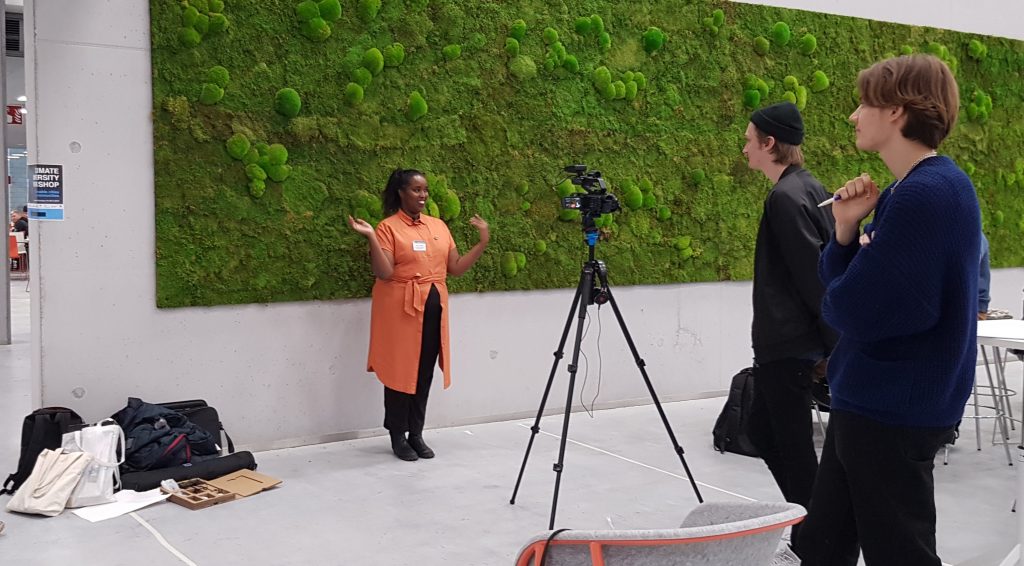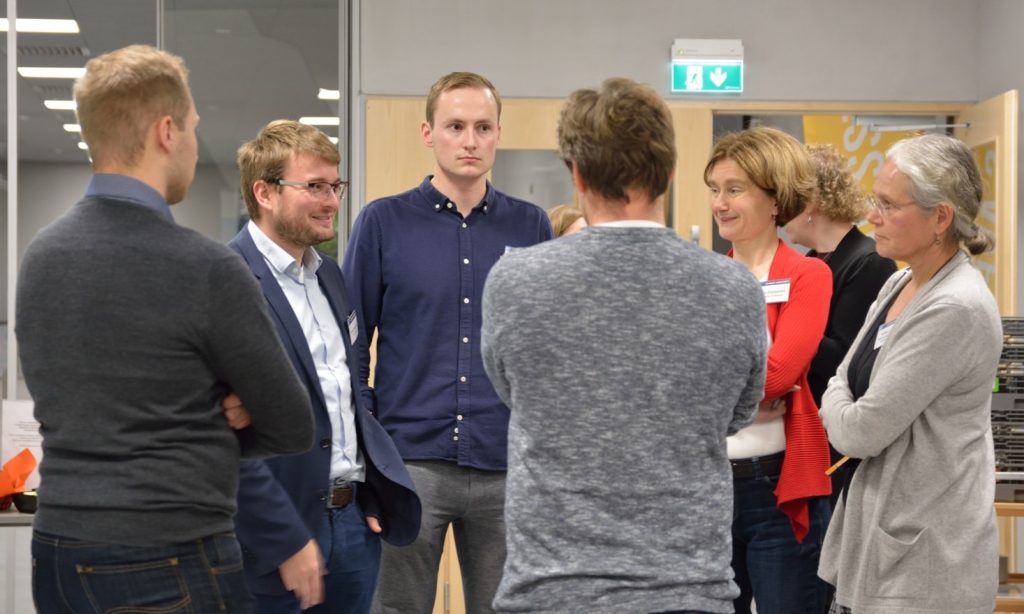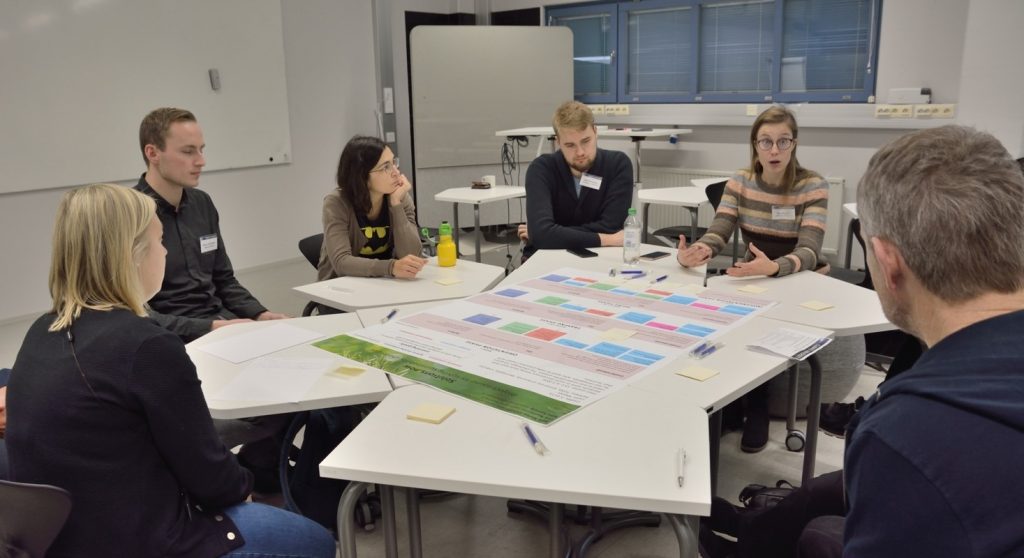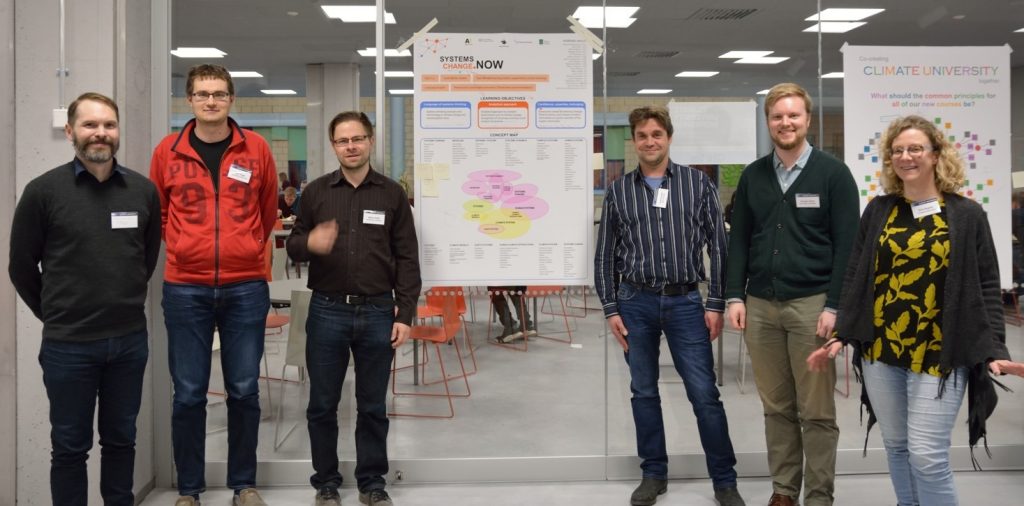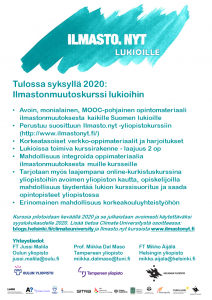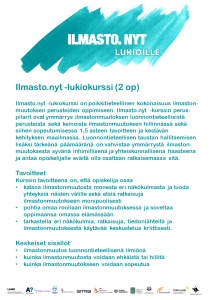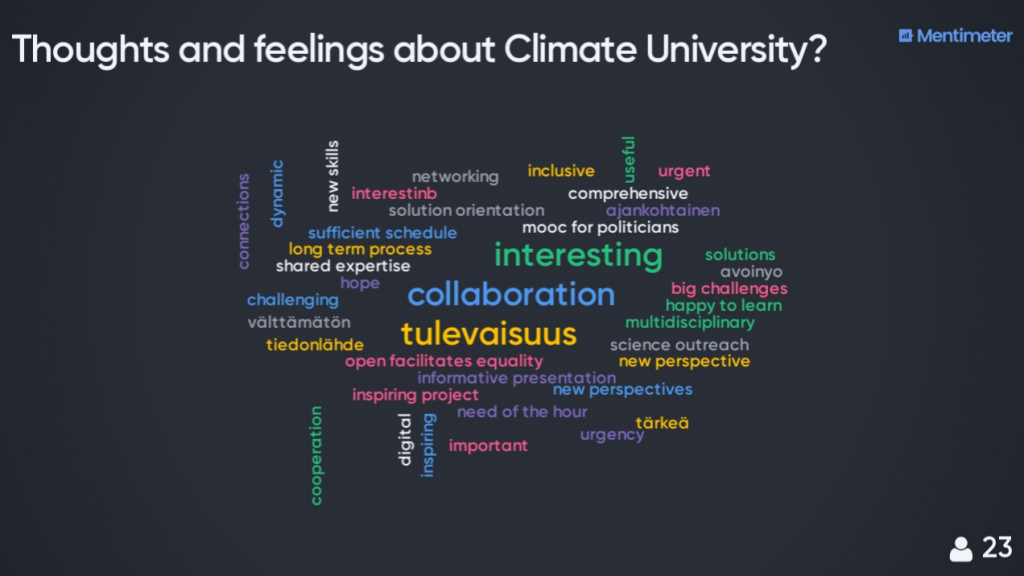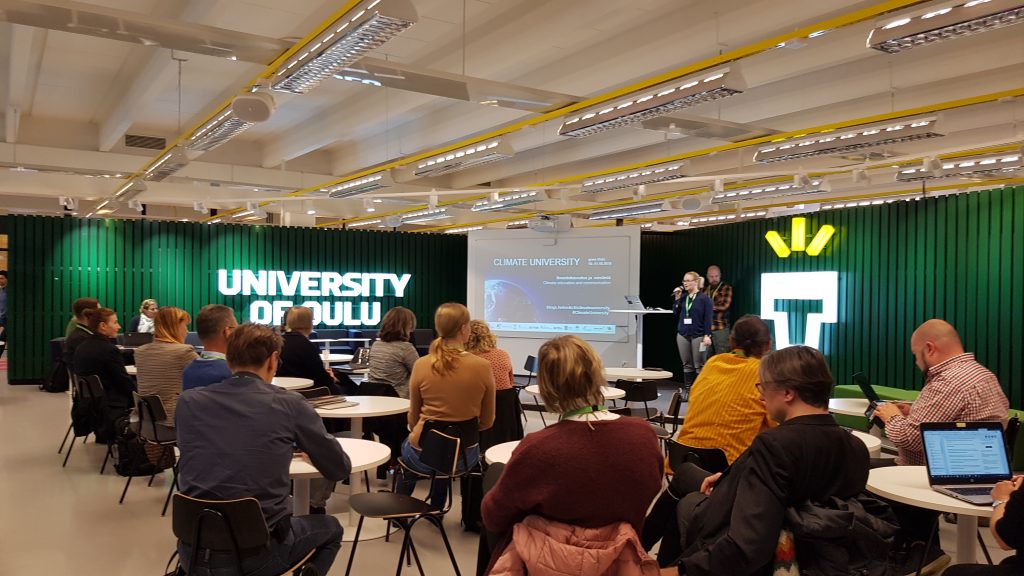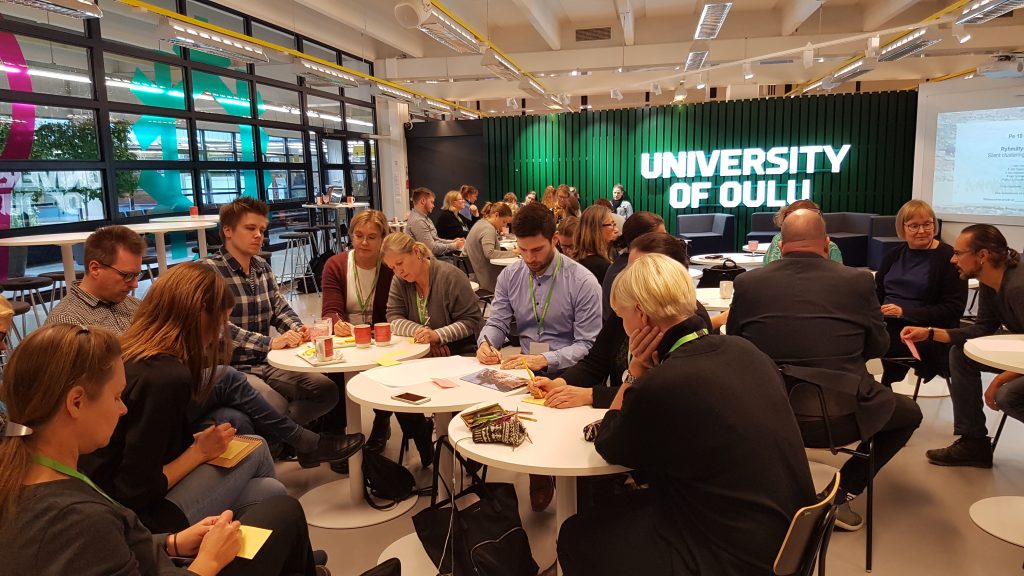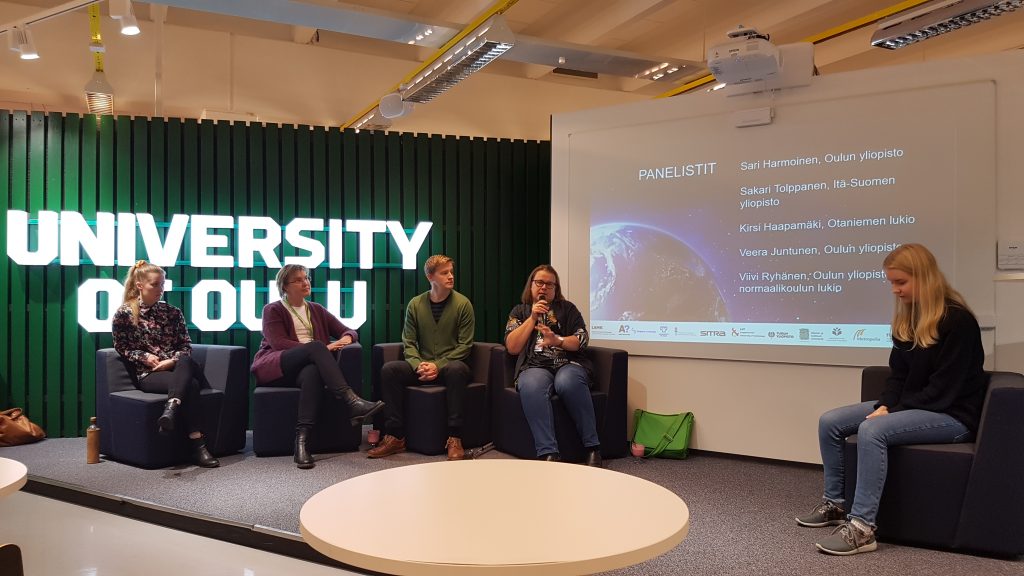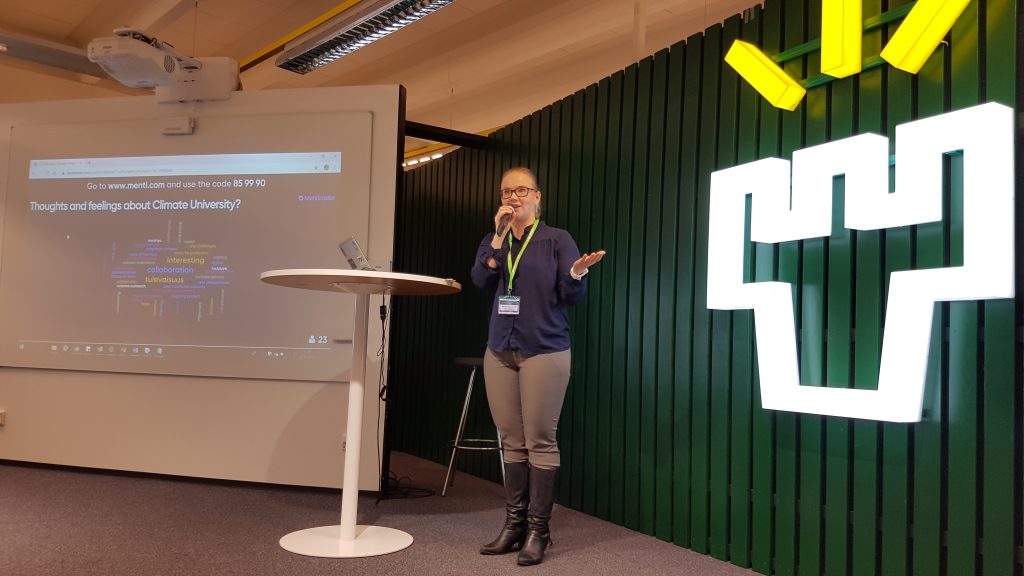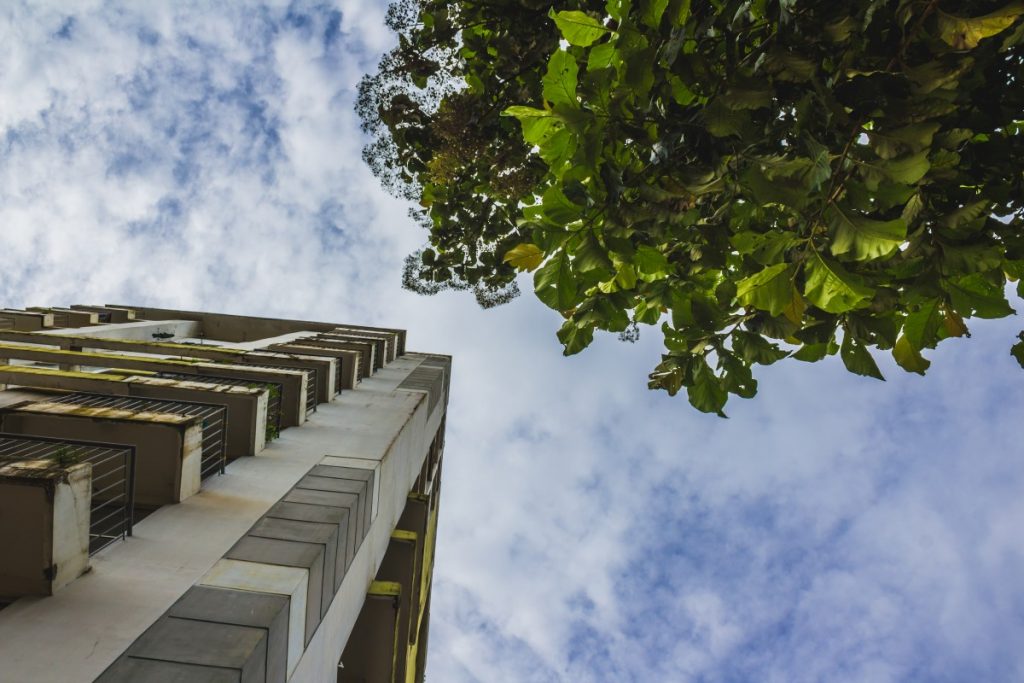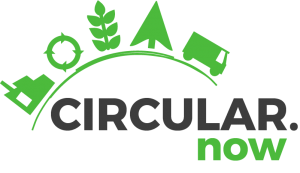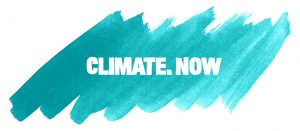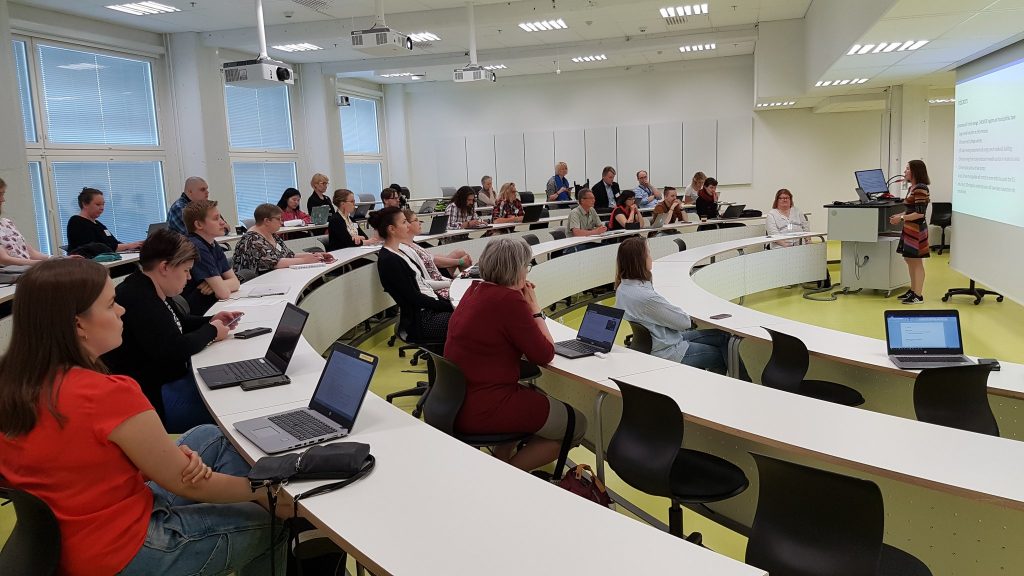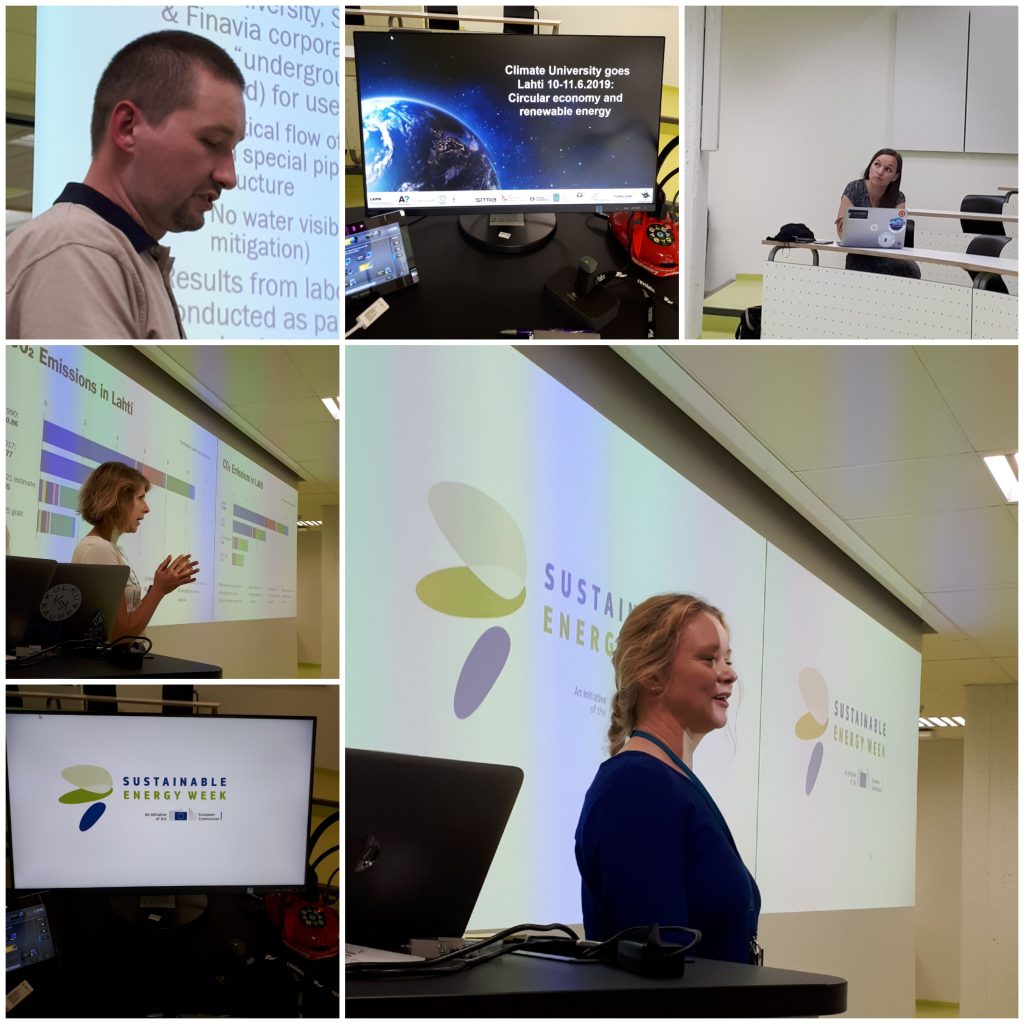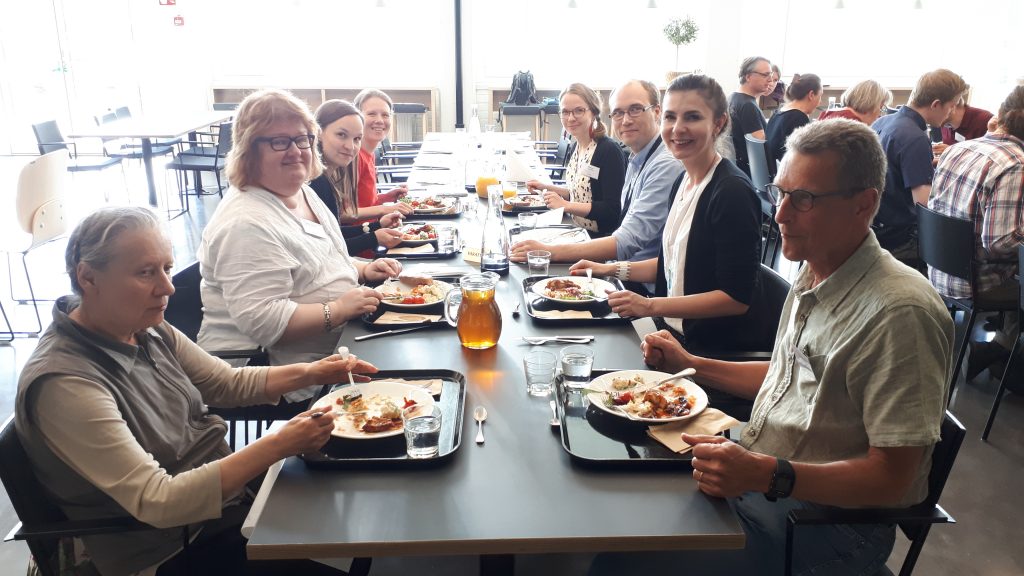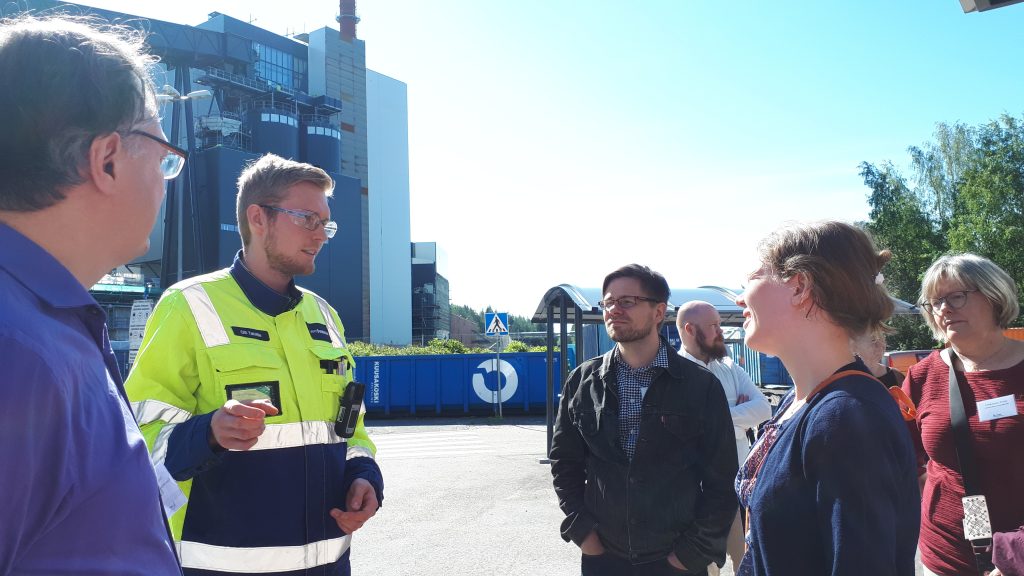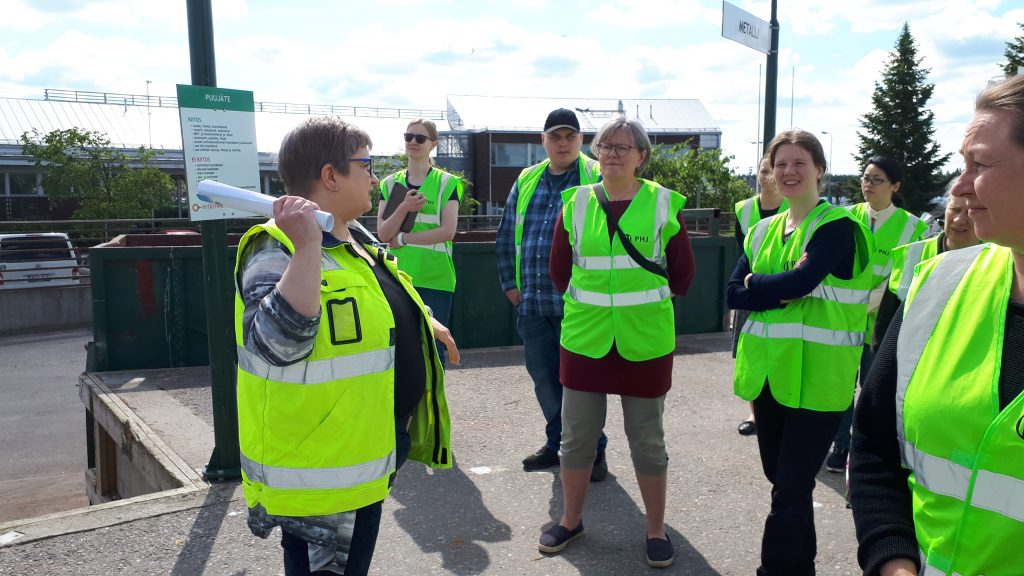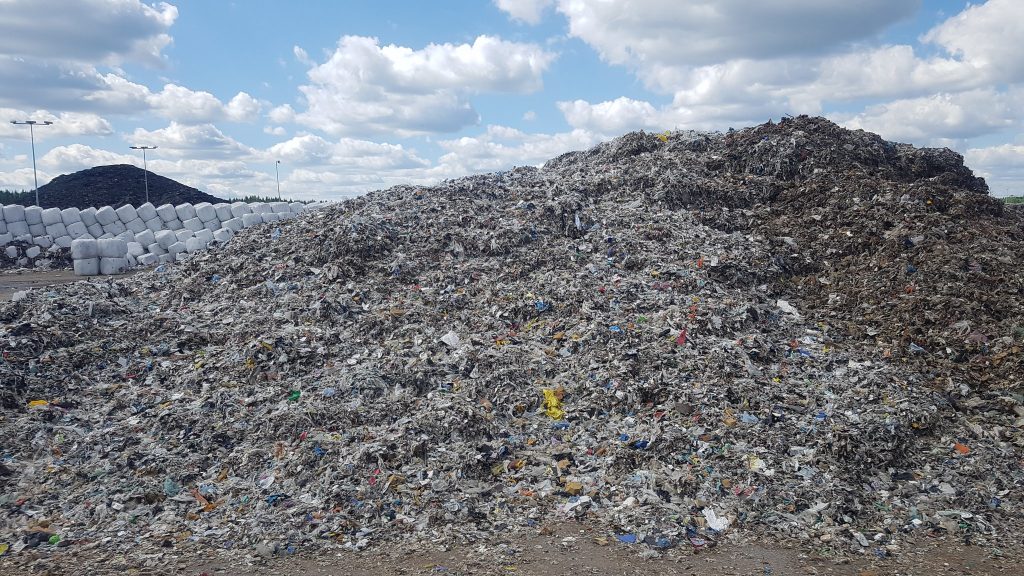Learning Objectives (preliminary 28.2.2020)
Sustainable.now – piecing together the challenges of climate change and sustainability
5 ECTS, Bachelor level, ENG & FIN
- The student understands the intersectional, partly contradictory, goals and interdimensionality of the climate challenge and the challenges of sustainable development.
- After completing the course, students will be familiar with the multidisciplinary links between climate change and different goals of sustainable development, and will identify different tools for solving problems.
- The student understands the importance of positivity and solution orientation both through the global responsibility of individuals and through the transformation of existing structures.
Contact: Sari Puustinen
SystemsChange.now – systems thinking tools for the sustainability transition
5 ECTS, Master level, ENG
- Students will understand why systems thinking is necessary to make the implications of global challenges comprehensible and understand the various forms of change Climate Change is bringing about in eco-social systems.
- Students will be able to make reflective use of models to ask and test questions about the structures and dynamics of systems.
- Students will recognize the potential for systems thinking as a form of expertise to contribute to their work and develop their capabilities for interdisciplinary collaboration.
- Students will understand the opportunities for intentional systems change and their own agency.
Contact: Mikko Äijälä and Morgan Shaw
Solutions.now – new climate solutions in collaboration with the working life
5 ECTS, Master level, ENG
Overarching learning goal is being able to mitigate and solve sustainability problems.
- The student is able to understand structure and dynamics of complex systems related to solving sustainability challenges in a real-life project.
- The student is able to anticipate possible and/or sustainable futures related to solving practical sustainability challenges.
- The student is able to differentiate, justify, and apply values and goals for sustainability.
- The student is able to create transition and intervention strategies to
enact change. - The student has developed his/her communicative and collaborative skills.
Contact: Sara Malve-Ahlroth
Statistical tools for climate and atmospheric science
5 ECTS, Master level, ENG
- The student understands basic terminology of statistical analysis of climate and atmospheric data: variables, scales, distributions, measures of center and variation.
- The student is able to apply common methods of Descriptive and Inferential Statistics.
- The student remembers how to conduct more advanced statistical analyses to the data: Regression, variance and covariance analysis; linear and nonlinear models; time series analysis; multivariate methods.
- The student understands how to find the best analysis method for the data and prove the validity of the method.
- The student is able to report the results in a scientific article.
Contact: Santtu Mikkonen
Climate communication
1-2 ECTS, Bachelor level, ENG & FIN
- The student understands what is Climate Communication in its different forms.
- The student is able to identify and discuss things that make Climate Communication a) important, b) challenging.
- The student understands what affects the messengers and recipients of Climate Communication.
- The student is able to critically analyse climate change messages and feedback to them.
Contact: Mira Hulkkonen
Lukiolaisen Ilmasto.nyt
2 op, FIN
Ilmasto.nyt -lukiokurssi on poikkitieteellinen kokonaisuus ilmaston-muutoksen perusteiden oppimiseen. Ilmasto.nyt -kurssin perus-pilarit ovat ymmärrys ilmastonmuutoksen luonnontieteellisistä perusteista sekä keinoista ilmastonmuutoksen hillinnässä sekä siihen sopeutumisessa 1,5 asteen tavoitteen ja kestävän kehityksen maailmassa. Luonnontieteellisen taustan hallitsemisen lisäksi tärkeänä päämääränä on vahvistaa ymmärrystä ilmaston-muutoksesta syvänä inhimillisenä ja yhteiskunnallisena haasteena ja antaa opiskelijalle eväitä olla osaltaan ratkaisemassa sitä.
Yhteystiedot: Jussi Malila


